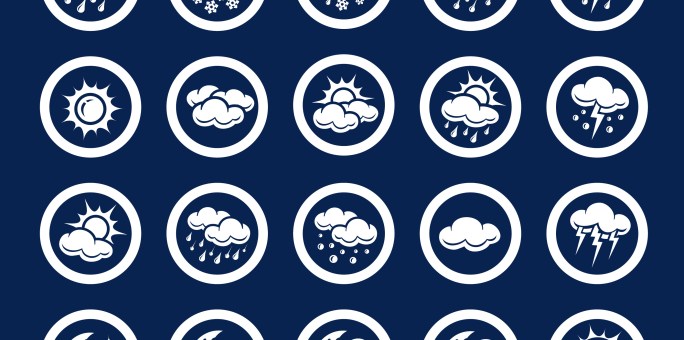
For many people, snow is one of the best things about winter. What could be more fun than sledding and skiing in it, building snowmen out of it, or cozying up at home as flakes of it fall outside?
However beautiful, though, it’s always important to stay on top of expected snowfalls and changing winter conditions so you can keep safe. The challenge, of course, can be in knowing what all those winter warnings and watches actually mean.
Do you know the difference between sleet and freezing rain? Is a winter storm always a blizzard? If you don’t know the answers to these questions, you may want to read up on different winter weather terms. Here’s a bit of a primer, culled from the National Weather Service, to get you up to speed.
Frost/Freeze Warnin
Subzero temperatures are forecasted.
Freezing Rain
Rain that turns to ice as it hits the ground.
Sleet
Rain that freezes into ice pellets before hitting the ground.
Snow Flurries
Light snow falling for short durations, with little or no accumulation.
Snow Showers
Snow that falls in varying intensities for brief periods. Some accumulation is possible.
Winter Storm Watch
A winter storm with heavy snow and/or significant ice is possible within a day or two.
Winter Storm Warning
A winter storm with heavy snow and/or significant ice is imminent or occurring.
Blizzard Warning
Snow and strong winds (35 mph+) will reduce visibility to near zero, with deep snow drifts, for more than three hours.
Blowing Snow
Wind-driven snow that reduces visibility. It may be falling snow or snow that’s on the ground and picked up by wind.
Wind Chill
How cold the wind and air feel on exposed skin (not the actual temperature reading).
Wind Chill Advisory
Wind chill readings that are potentially dangerous with prolonged exposure.
Wind Chill Warning
Wind chill readings that are expected to be life-threatening within minutes of exposure.
Don’t let winter weather give you the cold shoulder! Knowing your winter weather terms can help you understand when it’s OK to grab your ‘board and head out, and when it just might be safer to stay inside.
Source: https://al.st/2HfSwYJ

